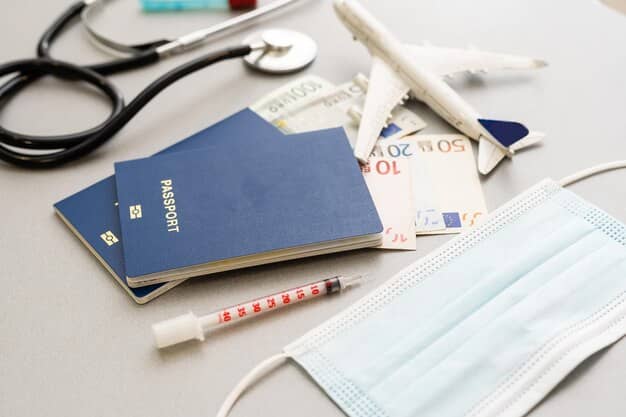Traveling to Poland for medical treatment is a popular option for patients seeking advanced healthcare at a reasonable cost compared to other European Union countries. To obtain a Schengen medical visa for Poland, applicants must provide a set of documents proving their need for treatment, along with evidence of financial ability to cover medical and living expenses during their stay.
This guide provides a detailed explanation of the requirements for obtaining a Schengen visa for medical treatment in Poland, outlining the necessary steps to ensure a successful application.
What is a Schengen Visa for Poland?
A Schengen Visa for Poland allows its holder to enter and stay in Poland for up to 90 days within a 180-day period. It also permits travel across all Schengen Area countries.
Types of Schengen Visas for Poland
- Tourist Visa: For individuals visiting Poland for tourism purposes.
- Work Visa: Granted to individuals who have obtained a work contract from a Polish company.
- Student Poland Visa: For students wishing to study at Polish universities.
- Medical Treatment Visa: For individuals seeking medical treatment in Poland.
- Family Visit Visa: Granted to those visiting relatives residing in Poland.
Requirements for a Schengen Visa for Poland
To obtain a Poland visa, you must submit the following documents:
- Completed and signed visa application form.
- Valid passport with at least three months of validity beyond the visa expiration date.
- Two recent passport-sized photos (35×45 mm) with a white background.
- Round-trip flight reservation.
- Proof of accommodation (hotel booking or invitation letter from a host in Poland).
- Proof of financial means (bank statement for the last three months).
- Travel insurance covering the stay period, with a minimum coverage of €30,000.
- Employment letter specifying job details and salary (for employees) or a business license (for business owners).
- Cover letter explaining the purpose of the visit and travel plans.
Requirements for a Schengen Visa for Medical Treatment in Poland
To obtain a Schengen visa for medical treatment, the following documents must be submitted:
First: Basic Personal Documents
- A Valid Passport
- Must be valid for at least three months beyond the intended departure date from the Schengen area.
- Must contain at least two blank pages.
- Schengen Visa Application Form
- Must be completed accurately, either online or manually, and signed by the applicant.
- The form can be downloaded from the official website of the Polish consulate.
- Two Recent Passport-Sized Photos
- Must comply with Schengen visa photo requirements, including white background and specific size.
- Proof of Accommodation in Poland
- Hotel reservation or an invitation letter from the hospital indicating the place of stay during the treatment period.
- Dummy Flight Ticket
- A round-trip flight reservation indicating travel dates must be provided. This can be obtained from travel agencies without purchasing the actual ticket until the visa is approved.
Second: Medical Documents
- Detailed Medical Report
- Issued by a certified doctor in the applicant's home country, stating the medical diagnosis and the necessity of treatment in Poland.
- Letter of Acceptance from a Polish Hospital
- Should include details of the treatment, expected duration, and estimated costs.
- Proof of Partial Payment for Treatment
- Some hospitals may require a deposit as proof of commitment to the treatment plan.
Third: Financial Documents
- Proof of Financial Capability
- Bank statements for the last three to six months showing sufficient funds to cover treatment and living expenses.
- A financial sponsorship letter if treatment costs are covered by another entity.
- Medical Insurance Covering the Schengen Area
- Must cover at least €30,000 for any unexpected medical expenses.
Steps to Apply for the Visa
1. Book an Appointment at the Polish Consulate
An appointment must be scheduled in advance to submit the application at the Polish embassy or consulate. This can be done online or by phone, depending on the consulate's system.
2. Prepare All Required Documents
Ensure that all documents are complete and translated into English or Polish by a certified translator.
3. Pay the Visa Fees
Schengen visa fees are approximately €80 for adults and €40 for children aged 6–12 years. Certain medical cases may be exempt from these fees.
4. Submit the Application and Attend the Interview
- During the interview, questions regarding the purpose of travel, treatment plan, and financial status will be asked.
- All original documents and required copies must be presented.
5. Wait for the Visa Decision
Processing typically takes between 15 to 30 days. Additional documents may be requested in some cases.
Tips to Ensure Visa Approval
- Ensure Document Accuracy
- All documents must be up-to-date and match the information provided in the application.
- Provide Strong Financial Proof
- A stable bank account and proof of income increase the chances of approval.
- Do Not Purchase a Final Ticket Before Receiving the Visa
- It is advisable to submit a temporary flight reservation instead of buying a confirmed ticket.
- Choose a Recognized Hospital
- Applying for treatment at well-known hospitals enhances the credibility of the application.
- Follow Up with the Consulate
- In case of delays, applicants can contact the consulate for updates on the application status.
Reasons for Visa Rejection
A visa application may be denied for the following reasons:
- Insufficient Financial Proof
- Inconsistent or Incorrect Information
- Lack of Clear Medical Evidence for Treatment
- Incomplete Documentation
- Unstable Travel History or Previous Schengen Violations
If the application is rejected, an appeal can be submitted within 30 days of receiving the rejection notice.
What to Do After Receiving the Visa?
- Ensure that a valid health insurance policy is in place throughout the stay.
- Contact the hospital immediately upon arrival in Poland to confirm treatment appointments.
- In exceptional cases, the visa can be extended if medical treatment requires a longer stay, provided that an official medical report is submitted.
Obtaining a Schengen visa for medical treatment in Poland requires careful planning and the preparation of all required documents. By following the steps outlined in this guide, applicants can increase their chances of visa approval and ensure a smooth medical experience in Poland.
For further assistance, it is advisable to contact the Polish embassy in your country or seek advice from a Schengen visa specialist to ensure a strong and complete application.




